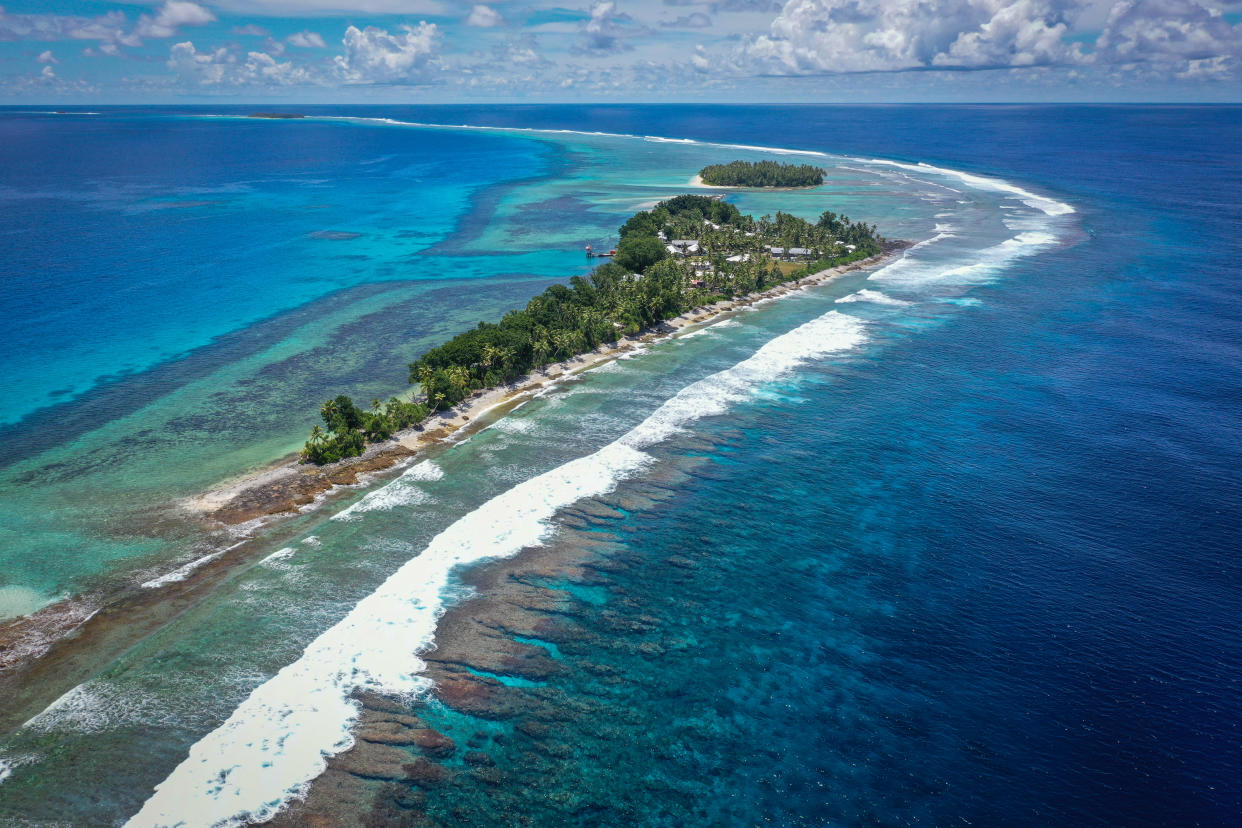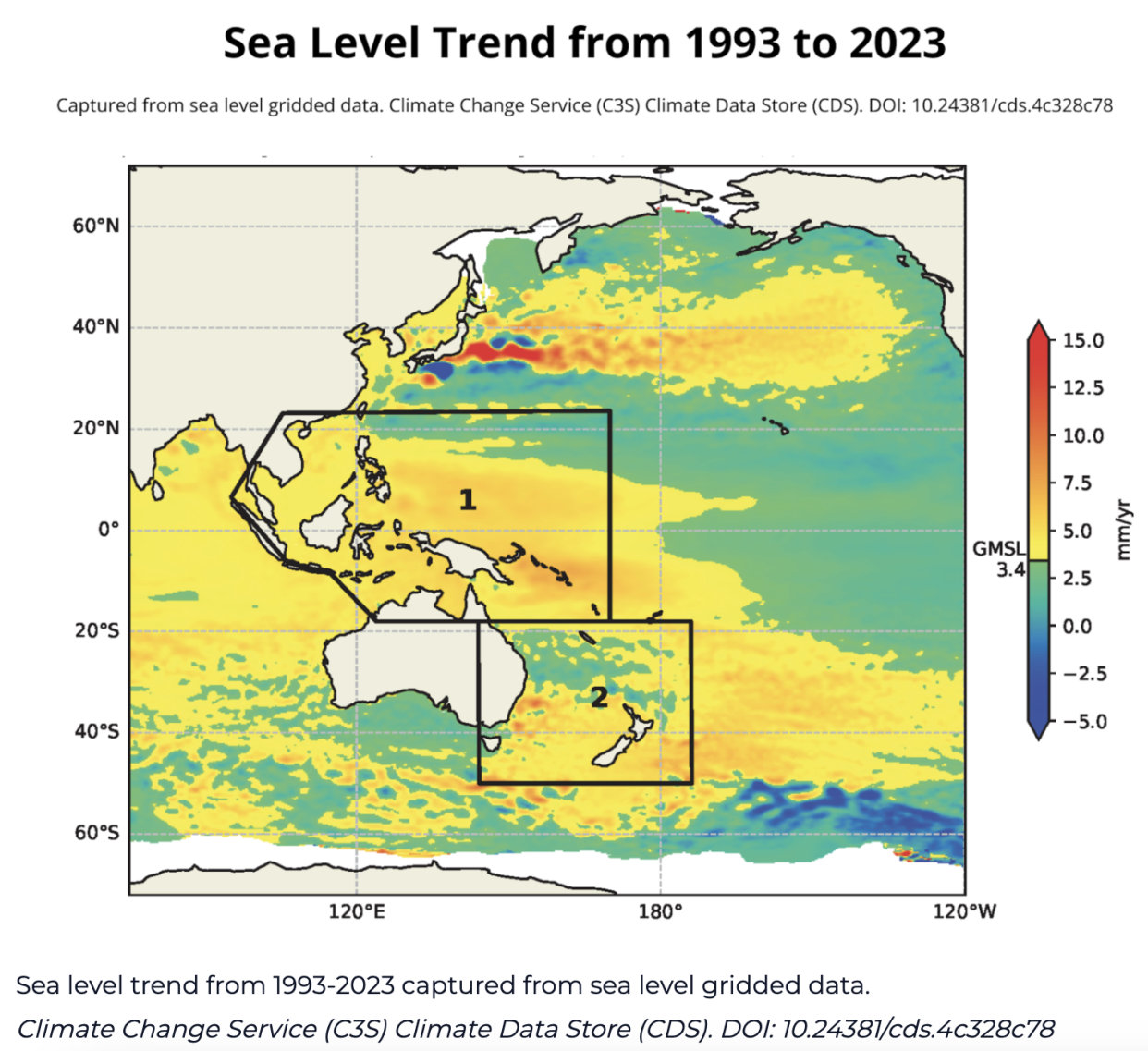Pacific islanders ask world's worst polluters to stump up money amid sea level 'disaster'

Low-lying ocean nations threatened by rising seas have used an important Pacific islands summit this week to call on greenhouse gas-emitting countries to pay.
Maina Talia, the minister of climate change in the tiny island nation of Tuvalu, called for polluters that emit the most greenhouse gases to make financial contributions to find solutions for the increasingly serious problems at the Pacific Islands Forum (Pif) in Tonga.
Tuvalu consists of nine low-lying islands between Hawaii and Australia and is particularly vulnerable to rising seas – but other Pacific leaders are pushing for new solutions at the summit. A sea level rise of just 15in could render Tuvalu uninhabitable over the next 100 years, with Australia already having offered residency to some citizens.
Talia said: “We really need to ensure that we continue to push for action from countries that are the most polluting. Polluter pays should be on the table. We cannot address climate change without addressing the root cause, which is the fossil fuel industry. It’s disaster after disaster, and we are losing the capacity to rebuild, to withstand another cyclone or another flood.”
What effects are Pacific nations seeing?
Pacific islands – which contribute just 0.02% of global carbon emissions – are bearing the brunt of climate change's effects.
In the Pacific islands, 90% of people live within three miles of the coast.
Apart from rising seas, climate change has meant that nations such as Fiji have seen worsening flash floods which have caused landslides.
Marine heatwaves have doubled in frequency since 1980, becoming longer and more intense - and rising seas have contributed to storm surges and coastal flooding.
A World Meteorological Organization report into the state of the climate in the south-west Pacific said that sea surface temperatures have risen three times faster than the global average since 1980.

In much of the western tropical Pacific, sea level has risen 4-6 inches, nearly twice the global rate measured since 1993. In the central tropical Pacific, sea level has risen approximately 5–10 cm (2–4 in)
Rising sea levels have resulted in dramatic increases in the frequency of coastal flooding since 1980.
UN secretary-general Antonio Guterres said this week: “A worldwide catastrophe is putting this Pacific paradise in peril. The ocean is overflowing. This is a crazy situation: Rising seas are a crisis entirely of humanity’s making. A crisis that will soon swell to an almost unimaginable scale, with no lifeboat to take us back to safety.”
How might a ‘polluter pays’ deal work?
In practice, with greenhouse gases, ‘polluter pays’ often involves carbon taxes, or an emissions trading scheme where upper limits for emissions are set.
Earlier this year, Pacific and Caribbean small island states including Fiji Nauru, Solomon Islands, Tonga, Tuvalu and Vanuatu, proposed a carbon levy of $150 per tonne of greenhouse gas emissions.
Pacific nations have previously suggested additional funding based on industries which emit the most gases.
In 2007, Tuvalu's then prime minister Apisai Ielemia wrote in a UN publication: "We must apply the polluter-pays principle and hence explore vastly new sources of funding based on GHG emissions…. International levies on aviation and maritime transport, as well as the sale of all fossil fuels, should be considered as another option."

In 2020, Guterres urged rich countries to tax windfall profits of fossil fuel companies and use that money to help countries harmed by the climate crisis and people who are struggling with rising food and energy prices.
"The fossil fuel industry is feasting on hundreds of billions of dollars in subsidies and windfall profits while household budgets shrink and our planet burns," he said. "Polluters must pay. Those funds should be redirected in two ways: to countries suffering loss and damage caused by the climate crisis; and to people struggling with rising food and energy prices," he told the annual gathering of world leaders in New York.
The focus this week has seen Pacific leaders aim to push for a climate adaptation fund funded by contributions from polluters, almost certainly driven by taxes and levies on carbon.
The UN-funded Pacific Insurance and Climate Adaptation Programme aims to help Pacific islands cope through measures such as insurance, and support targeted at industries such as agriculture.
What is the 'polluter pays' principle?
The idea behind the ‘polluter pays' principle’ is that, where possible, polluters should pay for the problems they have caused.
The principle is part of US environmental law and is supported by the European Union. It is established in British law under the 1990 Environmental Protection Act, and built on by subsequent legislation.
In a policy paper published in 2023, the UK government wrote: "Where possible, the costs of pollution should be borne by those causing it, rather than the person who suffers the effects of the resulting environmental damage, or the wider community."
On Tuesday, the UK government announced £12.9m in new climate funding.


